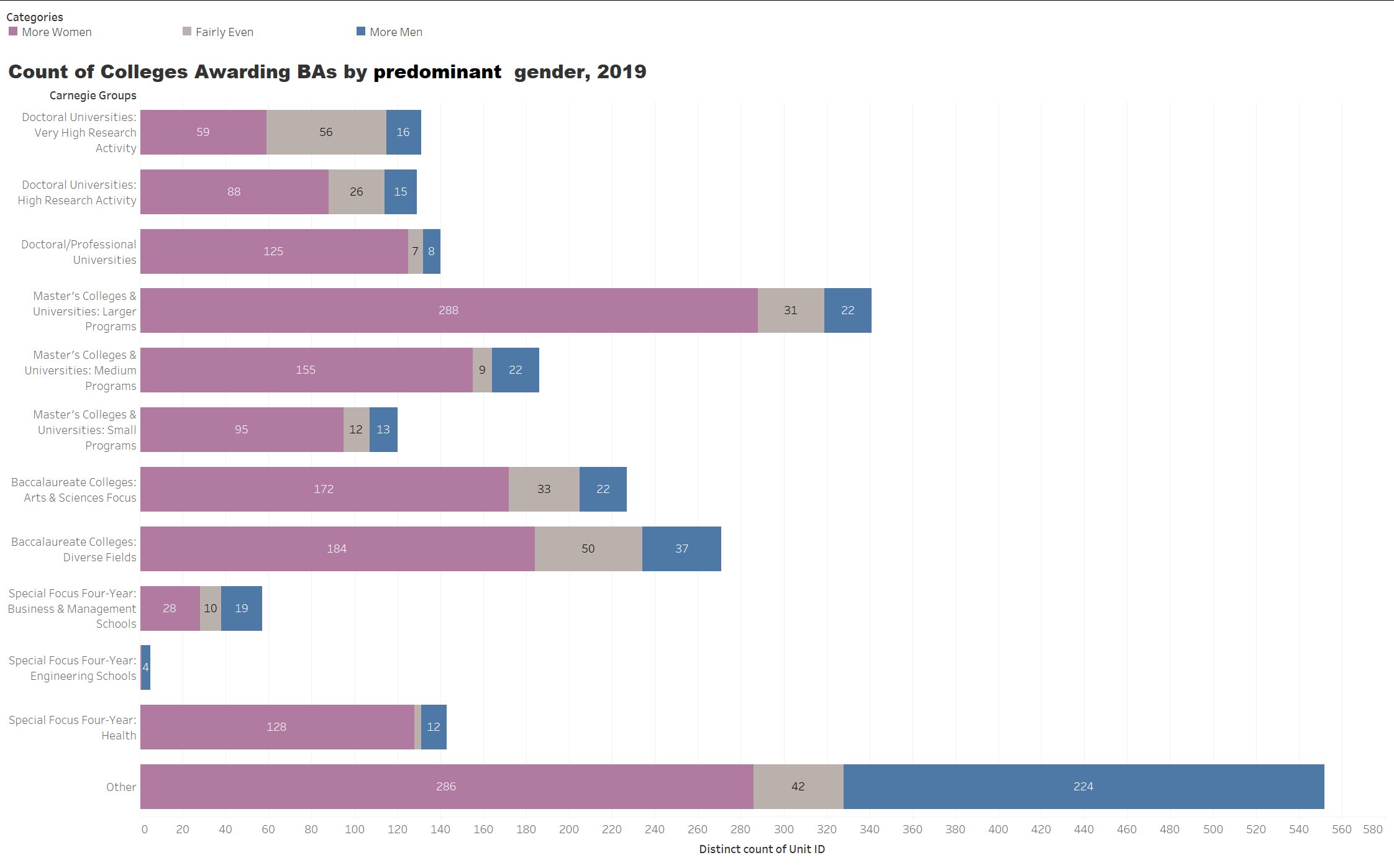You know, for every dollar a man makes
Laurie Anderson, “Beautiful Red Dress,” Strange Angels (1989)
a woman makes 63 cents.
Now, fifty years ago that was 62 cents.
So, with that kind of luck, it’ll be the year 3,888
before we make a buck.
Jon Boeckenstedt made this graph of the number of colleges awarding baccalaureate degrees, organized by which gender was awarded more degrees and the type of institution. Most college attendees have been women for some time now, which is not surprising considering that women are about 51% of the population. What is surprising, to me at least, is that there are so many more women than men in college, 57.5% to 42.5%, and that even more graduate, 58.5% to 41.5%–which is down from a high of 59.7% in 2005. The last year that women received bachelor’s degrees in close proportion to their share of the general population was when they finally reached that milestone: 1988, the year I entered college. Check out Mr. Boeckenstedt’s fuller discussion of the trend at Higher Ed Data Stories.

There’s a tiny outlier in the data: engineering schools.
Someone, I forget who, noted a while ago that a profession becomes less valued (less well compensated, that is–economists use compensation as a proxy for value) the more women enter it, such that overall wages go down to a greater degree than would be expected from an increase in the labor supply, and that the more highly-compensated and highly-thought-of a profession is is fairly directly related to how exclusively male it is. I’m not sure they included sanitation and transportation in their analysis; they may have focused on The Important Professions.
I’m curious as to whether there’s a relationship between the perceived value of college and the rather large difference in male and female attendance rates, or to co-education and the decline in single-gender colleges. That is, does college seem less valued because significantly more graduates are women? Or is my question rooted in invalid assumptions and anecdata?
I tend to think that the question of the value of education is more of a perversity in American thought: the one that sees everything in terms of dollars and cents, and wants colleges to be trade schools for the desk-bound class at the same time it spits on the trades. But I would not be surprised that at least some of the downward pressure on the wage differential accruing to college completion is due to who has a degree, not just to how many do.
What are the men doing while women attend college?